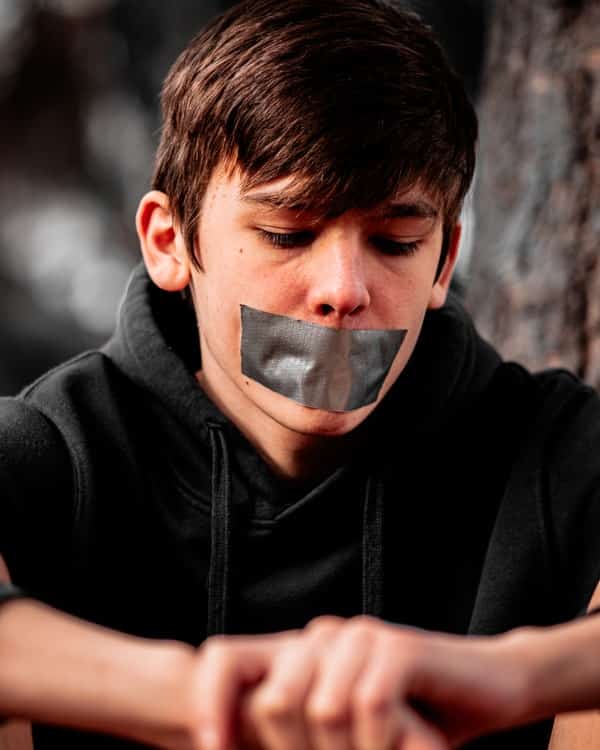Children in residential care institutions run by the Benedictine monks of Fort Augustus Abbey between 1948 and 1991 suffered sexual, physical, and emotional abuse, the Scottish Child Abuse Inquiry has found.

Witnesses gave evidence about children having been abused when in the care of Benedictine monks at both Carlekemp (CK) Priory School, North Berwick, and Fort Augustus (FA) Abbey School, Invernesshire.
Lady Smith’s inquiry examined the systems, policies, and procedures in place, how these were applied, and whether systemic failures enabled abuse to happen.
Lady Smith, Chair of the Scottish Child Abuse Inquiry, said: “Children were sexually abused at both schools. A number of monks were serial sexual predators and, because of the movement of monks between Fort Augustus and Carlekemp, they were able to target victims at both schools.
“Children were cruelly beaten by sadistic monks at both schools, and some beatings had sexual overtones. Children were humiliated and punished inappropriately and excessively.
“Some children complained to monks in positions of responsibility about being abused. They received either non‑existent or inadequate responses.”
Hearings in the case study took place between 18 June 2019 and 1 October 2019, during which time the Inquiry heard evidence from 43 witnesses.
These findings are the second in a series of three sets of case study findings in relation to the provision of residential care for children by male religious orders in Scotland.
The report highlighted:
- At CK, a group of paedophilic, abusive monks preyed on vulnerable children, each targeting children according to their individual sexual predilections. Sexual abuse included masturbation and other inappropriate sexual behaviour.
- The monks were not trained to look after children on a residential basis. They lacked the capacity and ability to do so. The notion that untrained monks could care for school‑aged children at CK and FA was seriously flawed.
- The movement of monks between CK and FA afforded sexual predators the opportunity to target children at both schools.
- At FA, children were sexually abused by monks who groomed their victims by employing physical brutality alongside gentle affection. Sexual abuse included masturbation, oral sexual activity, and rape.
- A lay teacher at FA sexually abused pupils; the abuse included photographing naked children in states of sexual arousal.
- A child at FA complained to the headmaster of having been sexually abused by a monk. He was accused of lying, and it was not reported to the police. The child complained of the abuse to his parents, who subsequently contacted the headmaster. The child was then physically punished by the headmaster for complaining to his parents.
- Another child at FA complained to his parents that he was being sexually abused by a monk, and they complained to the headmaster. The perpetrator was sent to Australia.
- No warnings were given when known sexual abusers left or were transferred from FA. One of those abusers went on to abuse children in Australia.
- A former monk at FA, Denis Alexander, has been convicted of sexual offences against children at FA.
At both schools, the monks pursued regimes of brutal treatment including public floggings, the mass beating of children, indiscriminate punching, and the use of implements to beat them. Children were beaten when naked or partially naked; this practice was sadistic and sexually motivated. Children suffered injuries as a result of physical abuse including bruising, bleeding, and swelling. Both schools engendered cultures of violence, bullying was rife, and was facilitated through the prefect system.
For many children, their experiences of the environments at both schools were dominated by fear. There was a policy of delayed punishment in both schools, which exacerbated the trepidation and fear felt by children awaiting punishment.
Some children complained to monks in positions of responsibility about being abused. They received either non‑existent or inadequate responses. Knowing that they would not be believed, other children refrained from complaining about abuse. Complaints made to devout‑Catholic parents were rejected because they would not accept it was possible that Catholic monks would abuse children.
Although some children benefited from the education provided, others did not. Some children who suffered abuse also had positive memories of their time at CK and/or FA. One child—who attempted suicide while at FA—was saved by the kindness shown to him by a particular monk. However, for many, this was not the case.
“The emotional scars caused by the trauma associated with sexual abuse, physical violence, and the denigration of children, were, for some, long‑lasting and debilitating, blighting their adult lives.”
Lady Smith will take these findings into account when she analyses all the evidence gathered by the Inquiry and decides what recommendations to make in her final report.
Applicants and any other witnesses with relevant evidence about the care provided by the Benedictines to offer should contact the Inquiry; their evidence can still be considered as part of the continuing process.


